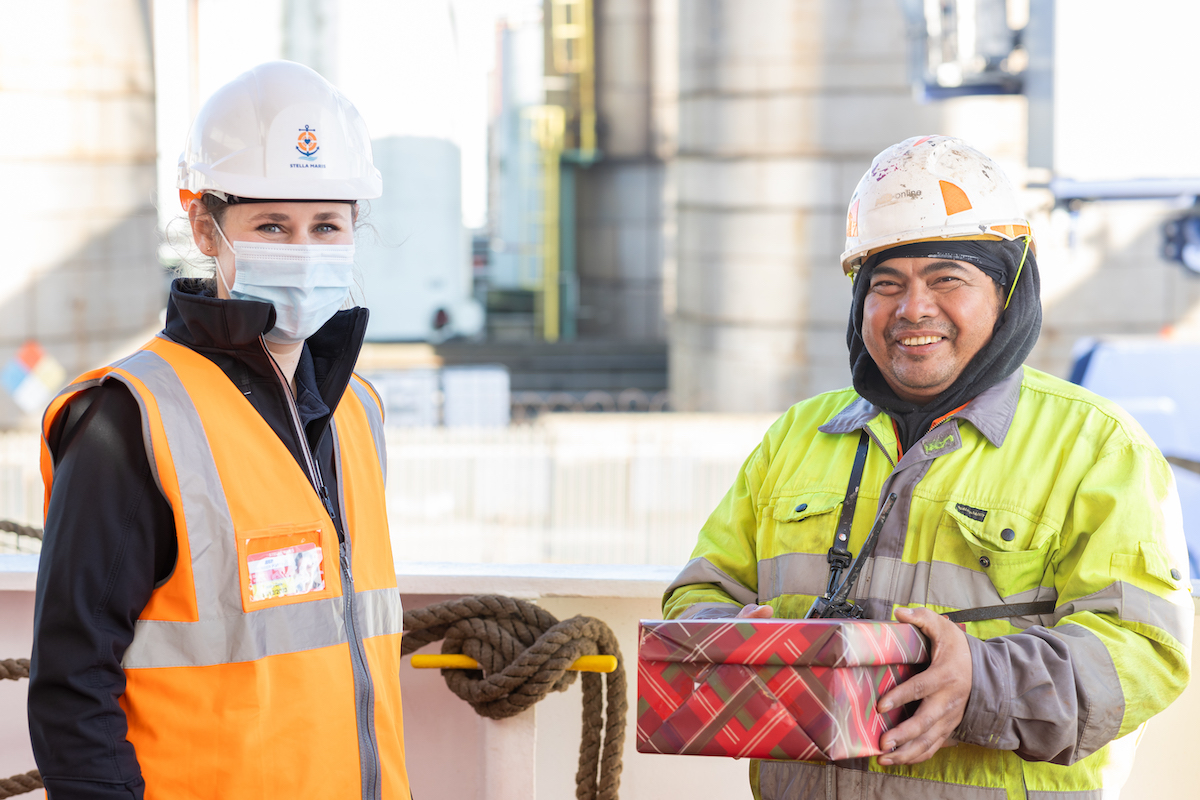When small children go to bed on Christmas Eve, their minds are full of images of Santa Claus flying through the night sky with reindeers pulling a sleigh piled high with presents. But, of course, it’s not Santa who will bring their presents - it’s seafarers.
When we are doing our Christmas shopping, we might not be aware that an estimated 90 per cent of all the food and other goods imported into the UK arrive by ship. This includes children’s toys, fridges, computers, cars, oranges and coffee, to name just a few items.
If it wasn’t for the seafarers who work on these ships, then many of the shelves in our shops would be empty – and children everywhere would be disappointed when they got up on Christmas morning.
For many seafarers, Christmas won’t be a time when they are at home with their families. It will often mean being in the middle of an ocean or in a foreign port, thousands of miles away from home.
In ports up and down Britain this Christmas, it will be business as usual for port chaplains at Catholic charity Stella Maris (formerly known as Apostleship of the Sea). One of the charity’s chaplains is Steve Willows, who is based in Immingham, Lincolnshire.
“We will start handing out Christmas gifts from the beginning of December. This is usually to bigger bulk vessels that may have a long voyage and so Immingham would be their final port before Christmas,” he said.
“If there is any shopping that crew members might want to do, so that they can celebrate Christmas properly on board, then we will bring it to the ship. In general, we have done more shopping due to seafarers not being able to go ashore still, because of the pandemic.”
Throughout Advent, Steve has been leading morning prayer on Facebook for seafarers and supporters of Stella Maris, reading the Gospel of the day and providing a short reflection.
Most seafarers would prefer to be at home celebrating with their families, said Steve.
“I met a seafarer at the beginning of November who was about to go home and I asked him when was the last time he spent Christmas with his family and he couldn’t even remember.”
Stella Maris provides SIM cards so seafarers can contact their families, and, free of charge, wifi units that its port chaplains leave on board for the duration of a ship’s stay in port.
Steve said parishes and schools in Grimsby, Cleethorpes, Immingham, and elsewhere in the Diocese of Nottingham always provide amazing support for seafarers at Christmas.
“We give seafarers either shoe boxes or gift bags, which contain items such as knitted hats, gloves, socks and chocolates.”
Typically, seafarers are away at sea for months at a time, often working 12 hours a day for low pay and living in cramped conditions and with little in the way of creature comforts.
Even on the largest container ships, such as the OOCL Hong Kong, which is 400 metres long and can carry 21,000 metal containers, a crew might just consist of a dozen seafarers. Working on such a huge ship with just a few other seafarers can be a lonely experience.
Most seafarers today are from countries in the developing world, such as the Philippines and India, and join a ship to earn enough money to support their family back home. It is estimated that 60 per cent of all seafarers are Catholic.
Bryony Watson, another Stella Maris port chaplain in Immingham, said: “Most years we would expect to help get seafarers to Christmas Masses or arrange a Mass on board, but this looks unlikely this year. Many seafarers are not allowed shore leave as their company and captains deem it too big a risk.
“The majority of seafarers I’ve met have, generally, not left their ship for the entirety of their contract. It is getting common to hear that, in nine months, they have only stepped foot ashore to check the distance between the hull and the water line.”
If readers would like to find out more about helping a seafarer this Christmas, and the work of Stella Maris, visit stellamaris.org.uk/christmas.
Let us also pray for seafarers and fishers and their families at this special time of the year.

